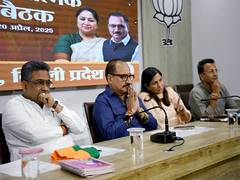Experts at the IHW Council initiated discussion, welcome Supreme Court’s guidelines on hysterectomy however implementation needs to be ensured
New Delhi [India], June 16: The experts at the workshop convened by Bayer and IHW Council, to promote knowledge and awareness on government “Expert Guidelines” on the prevention of unnecessary hysterectomies, observed that the Supreme Court’s order on curbing the prevalence of hysterectomies is a much-needed step in the right direction.
However, the implementation including auditing, monitoring and reporting of hysterectomy and data pertaining to hysterectomies at both state and district levels is a major challenge that needs to be addressed in a pro-active manner.
The discussion titled “The Need to Preserve the Uterus – Problem and Perspectives” saw an array of experts coming together to deliberate on the recommendations of the supreme court order and to pave the way for further action on the critical health issue.
Dr Hrishikesh Pai, President- FOGSI; Medical Director, Bloom IVF Group, while discussing about the negative impact of hysterectomies on women’s health said that “Right to good health is a fundamental right and untimely and unnecessary surgical interventions can endanger the mental and physical wellbeing of women.
The Supreme Court’s verdict has amply demonstrated that our concern has impacted all stakeholders and fuels our resolve to ensure better health of women at all levels. We need to come together in an integrated manner for women health.”
In April this year, the Supreme Court of India issued a directive to all States and Union Territories in the country, instructing them to adhere to guidelines formulated by the Union Health Ministry.
The Supreme Court’s action was in response to a public interest litigation (PIL) petition filed in 2013 by Dr Narendra Gupta, a public health activist, who raised concerns about the increased risk faced by poor, less-educated women, particularly in rural areas, who were being subjected to unnecessary and unjustified hysterectomies.
In response to these concerns, the Union Health Ministry has written to all stakeholders, urging them to take measures to prevent such hysterectomies performed by certain medical institutions. According to media reports the Health Secretary, Rajesh Bhushan, emphasized that the issue of hysterectomies is being closely monitored and requested states to provide data on hysterectomy status before and after the implementation of the guidelines. His communication also advised undertaking compulsory audits for all hysterectomies, similar to the existing practice for maternal mortality, in both public and private healthcare institutions.
While taking part in the discussion Manoj Saxena, Managing Director, Bayer Zydus and South Asia Head- Pharma said, “The Supreme Court of India’s order in this direction is a positive step towards increasing awareness of women’s health issues in the country.
These guidelines are very important to ensure that hysterectomy becomes the very last option to manage uterine conditions, Today, advanced methods are available to manage this condition while preserving the uterus. Bayer has been committed to women’s health for decades with a focus on improving healthcare accessibility and quality. Our focus is to empower women to take the right action to manage their health issues.”
Preserve the Uterus initiative was launched pan -India by Bayer in partnership with the Federation of Obstetric and Gynaecological Societies of India (FOGSI) and the Integrated Health & Wellbeing (IHW) Council, India’s leading not-for-profit health awareness institution in April last year, to raise awareness among women on the vital reproductive organ & educate health care practitioners with a view to avoid an untimely or unjustified hysterectomy and to advocate for policy regulations on the same.
Dr Ratna Devi, Director, Patient Academy for Innovation and Research; Chairwoman ISPOR Patient Council observed that “Patients don’t ask questions and place complete trust on the doctors hence counselling can play a major role in discussing the health concerns with the patients and empower them with the right knowledge and choices.”






